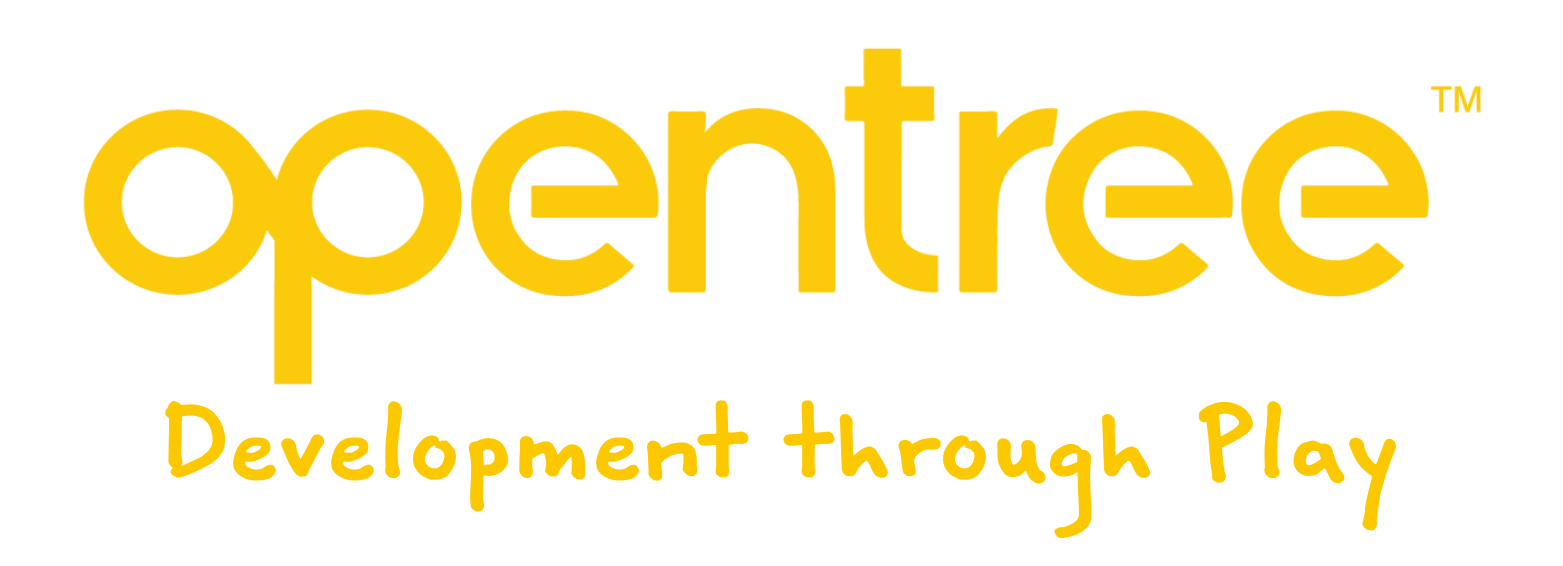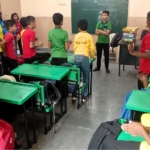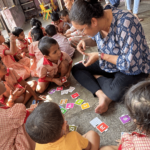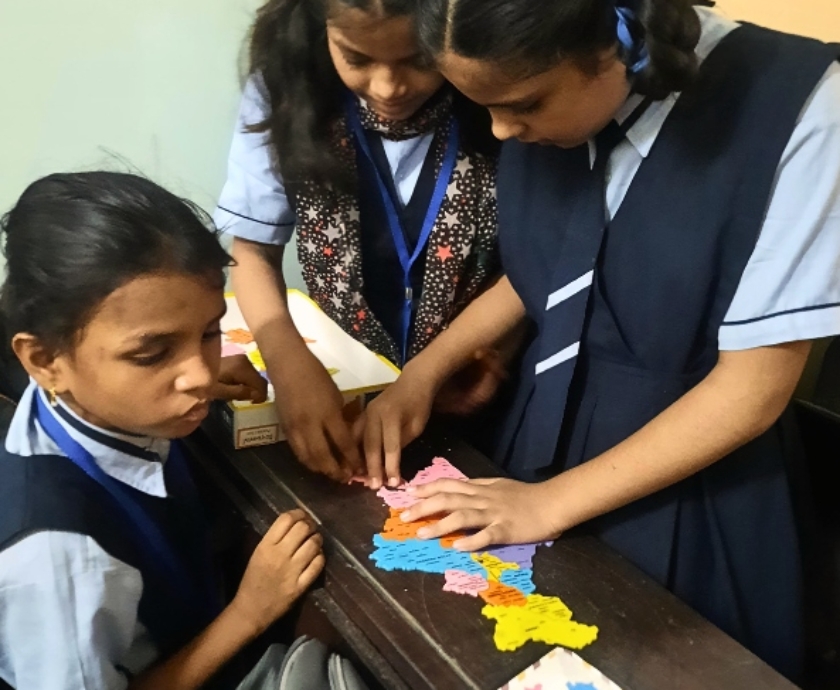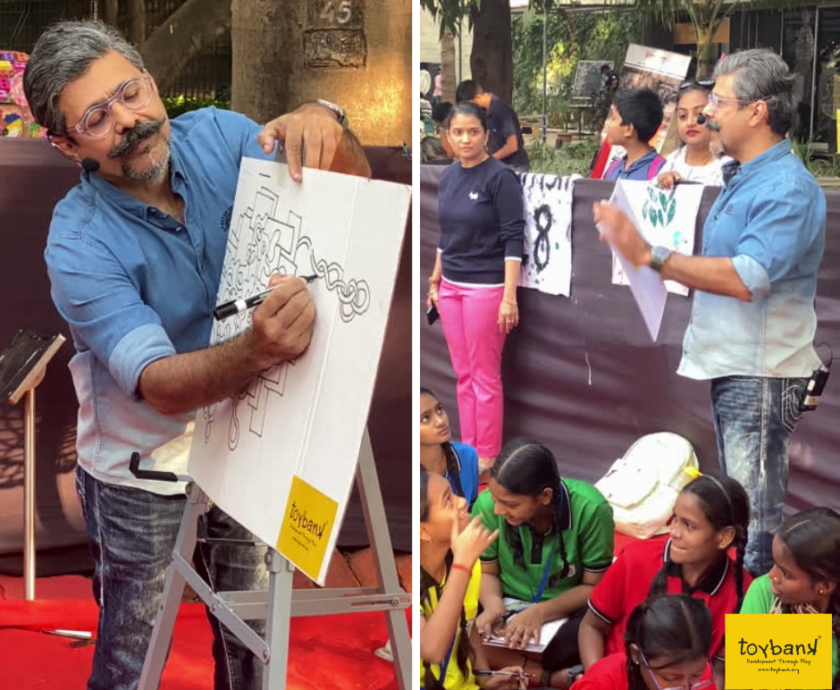The workshop helped shape my perspective that every child is equal and has the right to play, and it is our responsibility to ensure that play remains an essential component in every child’s life.
In a four-day workshop conducted for The Opentree Foundation’s Outreach Play Workers (OPWs), we spoke about what play is, why we focus on it, how we can make classrooms more playful and joyful for children, the importance of child protection policies and more.
Earlier in March, 30 OPWs came together to learn more about the importance of play and what it means to be playful. One of our OPWs, Gausiya Mansuri, narrates her experience:
The Play Worker Unnati Series workshop was conducted over four days and was full of activities with a lively atmosphere. Its main takeaway for me was understanding the distinction between being childlike and being childish; and how play improves life skills in children. We work with children on a daily basis so it is important for us to know these components.
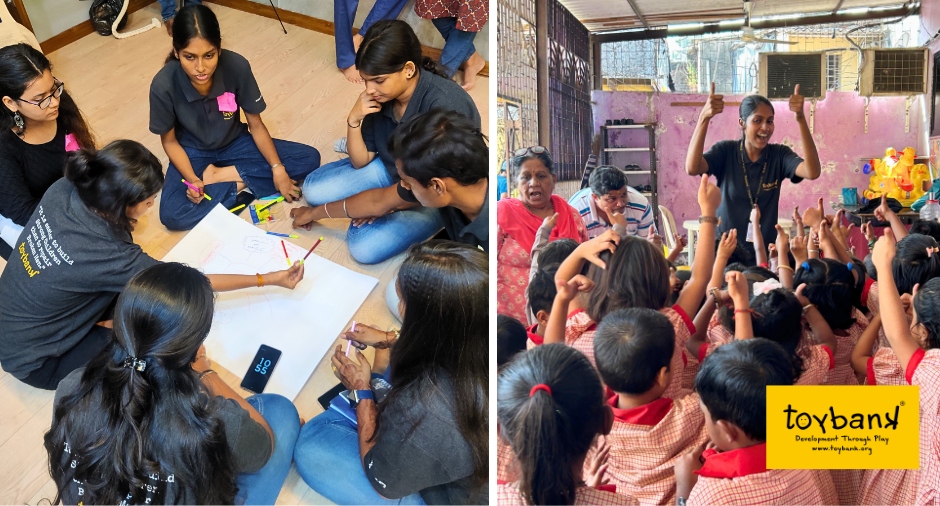
I’ve been a play worker for over a year now and the workshop allowed me to comprehend the meaning of being a playworker and internalised its essential value throughout the course. It helped me discover new activities and different ways to interact with children. It helped shape my perspective that every child is equal and has the right to play, and it is our responsibility to ensure that play remains an essential component in every child’s life.
The workshops are aimed at helping us understand how play impacts a child’s life on a daily basis and our role in creating safe and playful spaces for children; how learning happens subconsciously by children through these playful approaches.
For me, play promotes both mental and physical wellness. It helps develop a variety of skills, including communication, leadership, and time management, and that is exactly what I want to inculcate in children through our play sessions. These workshops also enable us to interact with other OPWs, and learn about their ideas and ways of managing classrooms.

In addition, it’s always beneficial to revisit the child protection policies, as it focuses on how we should interact with children, while keeping their rights at the centre of everything we do. This time, we also had a Communications training, which helped us understand the importance of communication, how to communicate with different stakeholders and what are the right ways to conduct ourselves when talking to these stakeholders, including teachers and principals.

